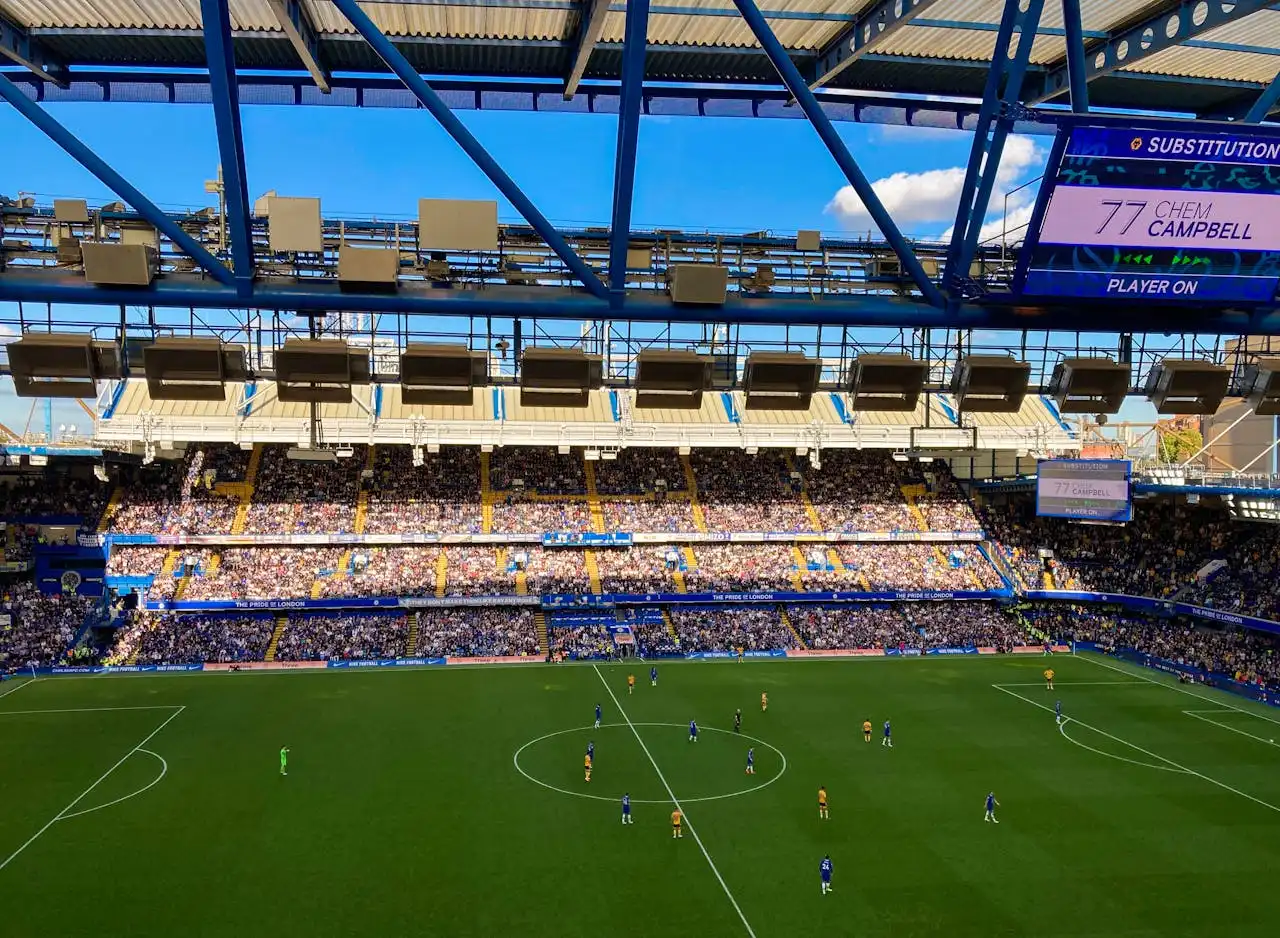Chelsea's Managerial Merry-Go-Round: A Masterclass in Chaos and Conquest
Muhe - Monday, 14 July 2025 | 11:55 PM (WIB)


The Mourinho Blueprint: Shock and Awe
Remember when José Mourinho first swaggered into London, declaring himself "The Special One"? It wasn't just bravado; it was a mission statement. He arrived, hit the ground running, and instantly instilled a winning mentality. His strategy was clear: build a fortress, both defensively and mentally. He created an Us vs. Them narrative, rallying his players against the world. Tactics were precise, fitness levels were off the charts, and the squad became a tight-knit unit, fiercely loyal to their leader. Two Premier League titles back-to-back, an FA Cup, two League Cups – the silverware spoke volumes. Mourinho proved that strong leadership and a clear identity, even a confrontational one, could transform a club. It was a no-brainer to trust his process back then, and it paid off handsomely.The Revolving Door: A Calculated Risk?
But here's the kicker: even Mourinho, twice, couldn't escape the Chelsea chop. This became the club's signature move under Abramovich: a readiness to pull the trigger if results dipped, or if the "beautiful game" wasn't beautiful enough, or if, well, who really knew the full reasoning? From Luiz Felipe Scolari to André Villas-Boas, Guus Hiddink (twice!) to Roberto Di Matteo, the carousel spun relentlessly. Many outsiders saw it as reckless impatience, a sign of instability. Yet, surprisingly often, a new face would step in, ignite the team, and bag a trophy. Think Di Matteo's unlikely Champions League triumph or Hiddink's calming, stabilizing influence. It was a high-stakes gamble, time and again, that somehow paid off more often than not. You’ve gotta hand it to them; they rolled the dice and won. It was truly a wild ride for everyone involved.Adaptability as a Superpower
So, what kind of manager thrives in this environment? Those who can adapt, and fast. Carlo Ancelotti, with his calm demeanor and attacking philosophy, brought an incredible double in 2010. Antonio Conte, a fiery tactician, revolutionized the Premier League with his 3-4-3 formation, winning the title in his first season. And let's not forget Thomas Tuchel, who inherited a struggling side mid-season and, in mere months, led them to a Champions League glory, building a defensive steel that was almost impenetrable. These managers weren't just reacting; they were strategically retooling, finding a system that maximized the talent at their disposal, often with minimal time for a traditional pre-season. It’s a testament to their tactical nous and ability to implement ideas under immense pressure. For them, it's always been a sink-or-swim kind of gig, and many rose to the occasion.The Weight of Expectation: A Double-Edged Sword
The flip side of all this success? Sky-high expectations. Winning breeds the demand for more winning, and consistently. A slight dip in form, a few key injuries, or a perceived lack of tactical evolution could quickly turn the tide against a manager. It wasn't enough to just win; you often had to win spectacularly, consistently, and without much fuss. This relentless pressure, while driving remarkable success, also created a fragile environment where long-term projects were rarely given the breathing room they desperately needed. It's a tough school, but only the fittest survive – or, more accurately, survive for a little while before the next chapter begins. You might say it's an occupational hazard of managing one of the world's most ambitious clubs.A New Chapter? Todd Boehly and the Long Game
With the change of ownership to the Todd Boehly-led consortium, there seems to be a subtle shift in the winds at Stamford Bridge. While results are still paramount (because, well, it’s Chelsea!), there's been clear talk of a more patient, long-term approach, focusing on integrating youth talent and building a sustainable, cohesive structure. Mauricio Pochettino's appointment, despite the mixed results experienced so far, hints at a desire for a manager who can not only deliver wins but also cultivate a distinct playing style and develop young talent for the future. It's a noticeable departure from the quick-fix mentality that defined the previous era. Whether the new owners can truly resist the urge to revert to old habits when the pressure mounts remains the million-dollar question. It’s early days, but the narrative might finally be changing for the Blues.Conclusion: The Blue Paradox
Chelsea's managerial history is a paradox wrapped in a riddle inside a Champions League trophy. It's a saga of ruthless ambition, tactical brilliance, and unparalleled volatility. Was the constant change a deliberate strategy to keep players on their toes and prevent complacency? Or was it simply the whim of an impatient owner who craved instant gratification? Perhaps it's a bit of both. What's undeniable is that, through all the comings and goings, Chelsea has etched its name into football history with a haul of major trophies that most clubs can only dream of. The Stamford Bridge dugout might just be the hottest seat in football, but it’s certainly never been boring. And for the fans, that wild ride has often, gloriously, ended with a trophy parade.
Liverpool vs Arsenal Prediction: Week 3 of the 2025/2026 Premier League
14 days ago

Rayo Vallecano vs. Barcelona Prediction: Week 3 of La Liga 2025/2026
14 days ago

Messi's Last Dance? The GOAT Hints at a Potential World Cup Farewell in 2026
15 days ago

Real Madrid vs Mallorca Prediction: Los Blancos Aim for Third Consecutive Win
15 days ago

West London Derby: Chelsea vs. Fulham Prediction, Week 3 Premier League Match
16 days ago

Manchester United vs Burnley Prediction: Tough Test at Old Trafford
16 days ago

The Roar of History: Why Almaty Ortalık Stadium Isn't Just a Venue, It's Kazakhstan's Heartbeat
16 days ago

Wayne Rooney’s Stark Warning: Can Manchester United Still Attract Elite Managers?
16 days ago

The End of the Road: Ole Gunnar Solskjaer's Turkish Adventure Concludes Abruptly at Besiktas
16 days ago

Argentina vs. Venezuela: Lionel Messi's Final Moments in Home?
16 days ago
